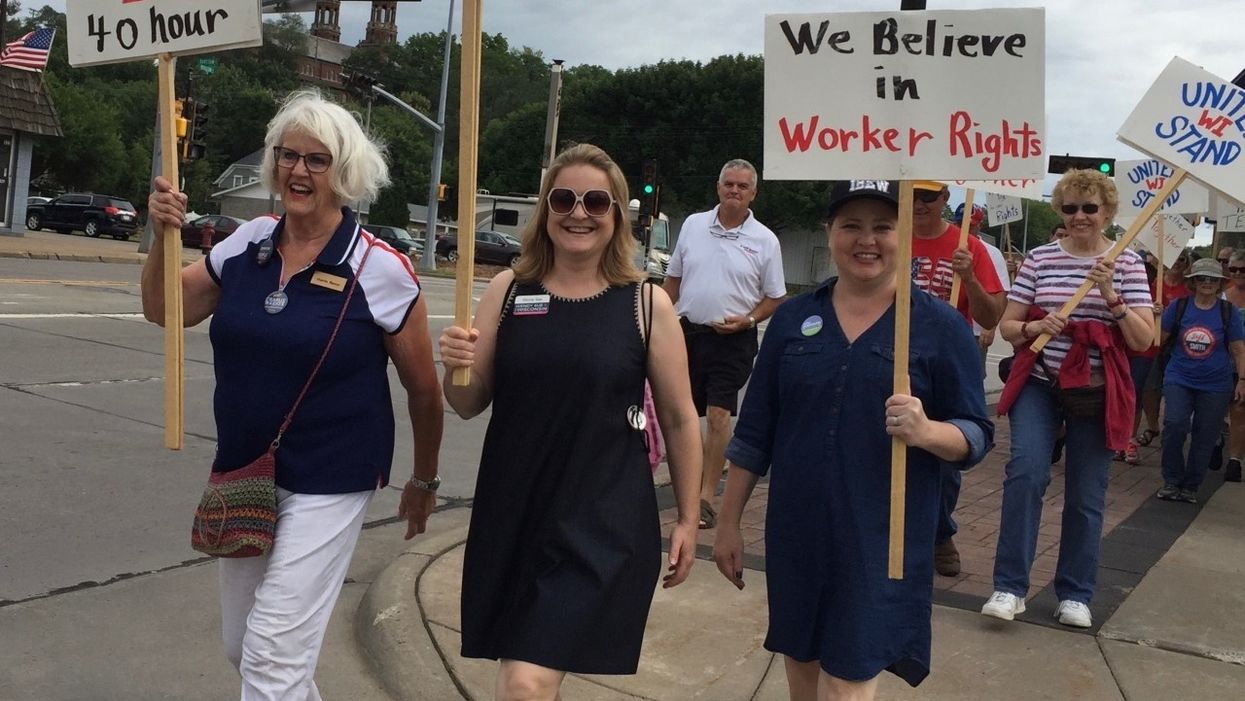Greenwood is co-director of voting rights and redistricting for the Campaign Legal Center, a nonprofit government watchdog.
Five Supreme Court justices declared last week that though partisan gerrymandering is unconstitutional and a scourge on our democracy, the court is both unwilling and unable to step in and police this terrible practice. That's right – extreme gerrymanders, including those that benefit Democrats in Maryland and Republicans in North Carolina, are going to continue through 2020, and likely get worse when the redistricting maps are redrawn in 2021.
I have been litigating to end partisan gerrymandering for the past five years, including representing plaintiffs from Wisconsin in Gill v. Whitford, the case that went to the Supreme Court last year, and plaintiffs from North Carolina in Rucho v. League of Women Voters of North Carolina, which was decided last week at the Supreme Court.
Last year the court told us in Whitford that it wanted us to develop further evidence to explain the harms to individual voters of the Wisconsin gerrymander. Consequently, my team has spent the last 12 months hearing the tragic stories of Wisconsin voters who were harmed by the extreme gerrymander and now feel left out, left behind and totally ignored by their legislators. At the least it is depressing; in many cases it brings me to tears.
Take Linea Sundstrom of Milwaukee, an archaeologist turned activist, who set up a group called Supermarket Legends whereby volunteers educate people about the voting process and register people to vote as they go into or out of grocery stores. Sundstrom testified that multiple people told her they didn't want to register to vote because they knew their vote wouldn't count for the state Assembly candidates. And it's hard to argue that that is a crazy conclusion – in two out of the four elections since 2012, more people have voted for Democratic candidates for the Assembly, yet the chamber has remained more than 60 percent Republican the entire time.
Or take Wendy Sue Johnson of Eau Claire, a family lawyer who was active on her local school board pre-2010. All the school boards in the area used to meet monthly with Assembly representatives (both Democrats and Republicans) to discuss how they could advocate for the Chippewa Valley schools down in Madison. But after the gerrymander was adopted in 2011, the Republican representatives stopped turning up at the meetings and stopped responding to requests for help from their constituents. "What is the point?" thought Johnson. "No one is listening to us."
And then there's Janet Mitchell of Racine, retired school teacher and lifelong civil rights activist. She's volunteered for more political campaigns than she cares to remember, but in 2018 when she was set to manage volunteers to knock on doors for Assembly candidates on the weekend before the election, half the volunteers didn't turn up. Ever devoted to her cause, Mitchell called up the missing volunteers to find out what was going on. Universally the response was the same: Look, the Democratic candidate is just not going to win, with these lines it's impossible. And what could she say to that? Though Mitchell has been fighting impossible causes all her life, she knew the voting maps were stacked against Democrats in Racine County. How could she promise otherwise?
I could recount story after story of patriotic individuals around Wisconsin and North Carolina who keep fighting in the face of impossible odds. Being a part of the federal lawsuits to end partisan gerrymandering gave them hope that this country might renew its promise to democracy. And then came June 27, 2019. The door for federal claims to stop partisan gerrymandering is now firmly sealed shut.
I have spent the past few days speaking with dozens of individuals across the country about where we go now. In Michigan, Missouri, Colorado and Utah the people are fired up – in each state the voters brushed aside the politicians and adopted independent redistricting commissions last year by popular referendum – each one requires partisan fairness in the drawing of redistricting plans. In Arkansas, Oklahoma, Nebraska, Oregon, Virginia and a dozen other states voters are working together to adopt independent commissions and/or partisan fairness language so their next set of voting maps won't be gerrymandered. This is great news for many people in many states.
And yet, the law in Wisconsin and North Carolina leaves voters out in the cold. There is no mechanism in either state to use a ballot initiative process to adopt an independent commission or to adopt fairer rules for redistricting. The voters in these states (and many others) have to rely on the good faith of a gerrymandered legislature to choose to adopt change that will take power away from themselves and give it back to the people. I can barely write that with a straight face. That reform camel is not going to make it through the eye of the gerrymandered needle.
On Thursday afternoon, I spoke with Donald Winter, of Neenah, Wis. Winter has lived all of his 83 years in Wisconsin, except when he was deployed overseas with the Marine Corps in the 1950s. He found time, in addition to his work in a local foundry, to serve as an alderman on his local council for over 20 years. I explained the Supreme Court's decision to him. "Oh ...." he said. Then he took a deep breath and asked in a genuinely searching way: "Do they just not care about us?" My eyes welled with tears. "I care about you, Mr. Winter, and there are millions of Americans who do, but … well ... a majority of those in power, those at the Supreme Court and those in your state legislature, I guess they don't."



















Trump & Hegseth gave Mark Kelly a huge 2028 gift